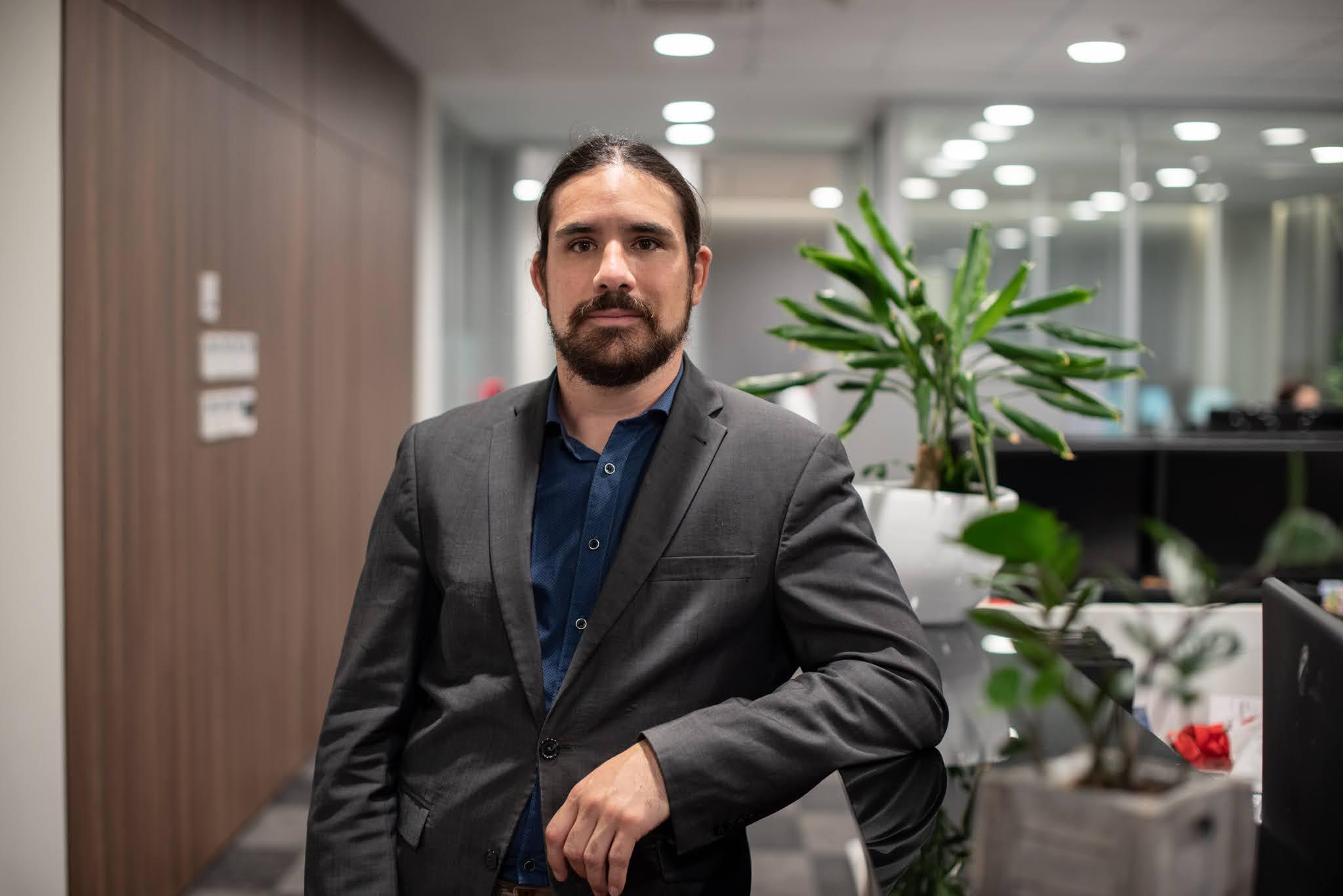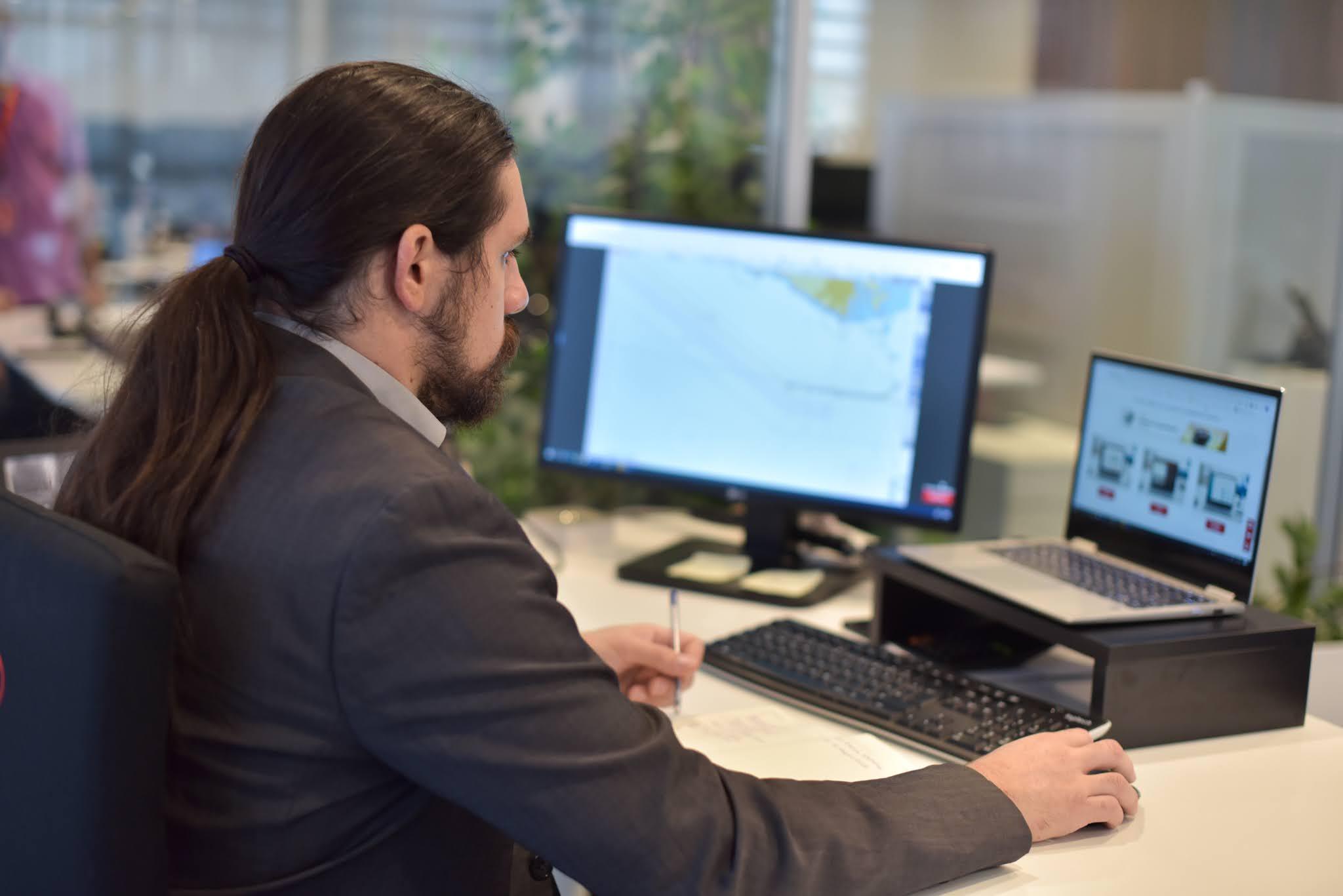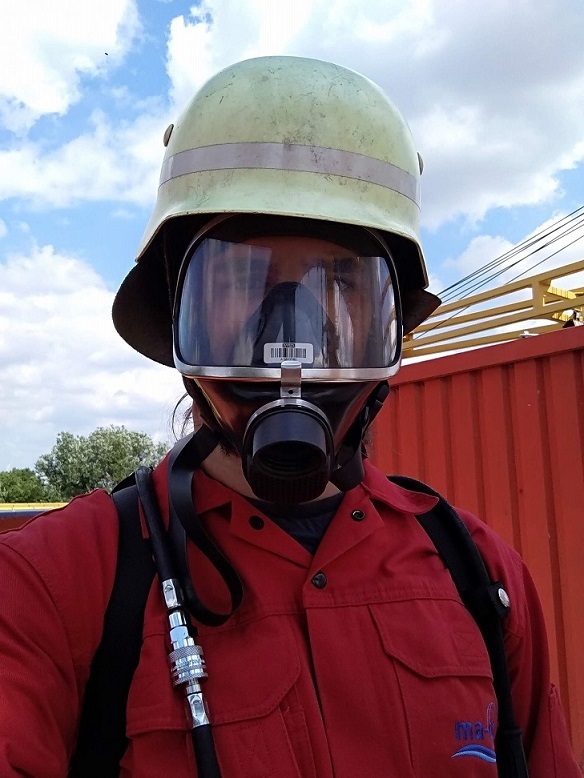Mintra ECDIS expert helps seafarers navigate towards training success

“To me, one of the most important things about ECDIS is that it does not stand still."
Growing up in landlocked southern Germany, it seemed unlikely that Marvin Bielek would pursue a career in the maritime industry. But a passion for boats – and a high school internship with a local waterway authority – set him on the path to becoming Mintra’s guru of all things ECDIS (Electronic Chart Display and Information System) and navigation.
Whether creating eLearning course content, writing equipment manuals for type-specific ECDIS or delivering classroom training sessions, the nautical author is passionate about helping seafarers become proficient in the art of navigation.
While the basics of navigation never change, said Marvin, the ongoing evolution of electronic systems makes it an exciting area of maritime to be involved with.
“Replacing paper charts with electronic charts as the primary source of navigation has completely transformed onboard operations. Not only has ECDIS enhanced the way in which seafarers plan and carry out safe passage, it has reduced the workload of those on the bridge and allows connection with other systems such as radar,” said Marvin.
“To me, one of the most important things about ECDIS is that it does not stand still. The industry recognises that there are ways to improve and develop to ensure that ECDIS fulfils safety obligations. The most recent improvement I have worked on came in 2018, and one of the major changes here was an overhaul of the alert management system.
“Crews were reporting that ECDIS caused too many unnecessary alarms on the bridge, which was triggering alarm fatigue. This is where crews hear the alarm but may not react to it because they think it will be false. Clearly, this was not a safe situation.
“Manufacturers request us to make changes to courses in line with ECDIS updates, but we also make amendments to our own courses to make sure customers get the best from them. For example, cybersecurity in the maritime sector is now a major issue so we include a section on how to best protect ECDIS from being exposed.”
Marvin started his journey into the maritime sector with a degree in ship management and nautical sciences from the University of Applied Sciences in Bremen. However, when he started his studies, he still had reservations that he might not be cut out for a life at sea.
He explained: “The first semester involved being a cadet on board a ship, so I figured that I would know within a few months if I would be able to adapt to the working environment – whether I would get seasick the whole time or if I wouldn’t enjoy being on board for weeks at a time.
“I completed a four-month contract and I really enjoyed it. I got lucky in that I was able to join a small ship of 130m which was navigated by the captain and two nautical officers. The captain was really invested in helping me with my training.

“I enjoy working on ECDIS, but for me it’s about the overall navigation aspect – how we integrate ECDIS into the flow of safe navigation."
“With such a small crew, the captain has to spend eight hours a day on the bridge from 8am until noon and from 8pm until midnight. He told me he needed a watchman at night, and he invited me to the bridge so that I could learn more than I would have done just being a deckhand.
“The crew mentored me, and I was able to learn so much more about navigation and ship’s equipment that I might have done on a large ship. During the four months we travelled from Rotterdam down to Morocco and returned up the coast of France and England. The experience made me determined to go for a career on board a ship.”
However, by the time Marvin completed his degree in 2014, the shipping industry as a whole had changed dramatically. Students had been told that German shipping companies would be lining up at the door to recruit them on graduation, but a crisis within the industry resulted in employers recruiting in more cost-effective ways. The jobs in Germany had completely dried up.
While working on his diploma thesis on navigation, Marvin met Prof Ralph Becker-Heins. As well as lecturing at the university, he owned the maritime eLearning company, Safebridge – an organisation that was acquired by Mintra in 2021.
Marvin was offered a full-time job as a nautical trainer and author in Hamburg and although it was always his intention to keep his training up and find work on board a ship, he enjoyed the role so much that he decided to stay.
“I effectively became the SME within the organisation for EDCIS courses, including generic training as well as for several type-specific courses. I became very focused on writing the equipment manuals and courses for both online and classroom learning, and also became a licensed trainer for many of the manufacturers,” he said.
“I enjoy working on ECDIS, but for me it’s about the overall navigation aspect – how we integrate ECDIS into the flow of safe navigation.
“I think the biggest challenge to the training of seafarers at the moment is accessibility and the lack of internet connectivity."

“The thing that really drives me is creating training that has value to seafarers. Yes, it needs to improve the safety of navigation, but it should focus not only on what seafarers want to know, but what they need to know.
“One thing I believe is really important is supporting seafarers after the course has been completed. It is difficult to retain knowledge and I think it is perhaps unrealistic to expect someone to sit the course then remember all of it. With our new courses, we give access to material that can be downloaded so learners continue to have a reference point on board.
“I think the biggest challenge to the training of seafarers at the moment is accessibility and the lack of internet connectivity. This really limits opportunities for training with ECDIS on board. We have experience of working with manufacturers in the past to provide some degree of offline ECDIS, however we are finalising our first fully offline version.
“This will be available through the offline version of our learning and competence management system Trainingportal and it will be a huge advancement, not only for those who need basic training in ECDIS but those seafarers who might need to refresh or upgrade their training. Being able to train in ECDIS on board will be a significant step forward.”
Insights & News
At Mintra, we're so much more than just a team—we're a force driving innovation and excellence in maritime training across Europe.
We’re excited to be taking the stage at one of Europe’s leading showcases of organisational learning.
We are delighted to share the exciting news that our People and Culture team has been shortlisted for the prestigious cHeRries Awards!